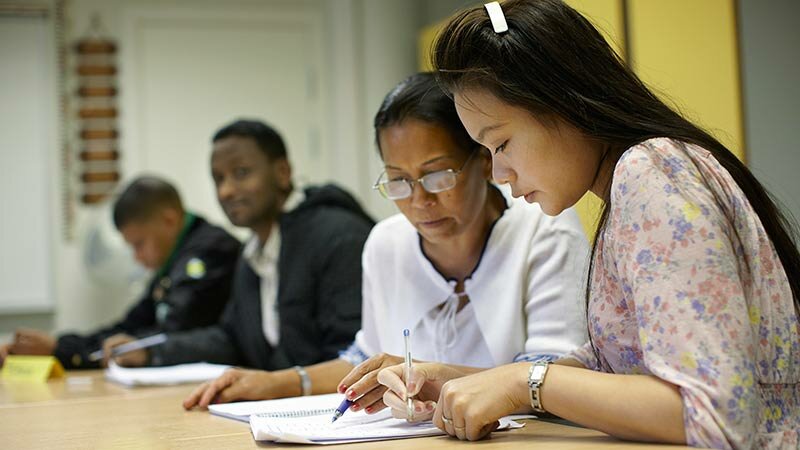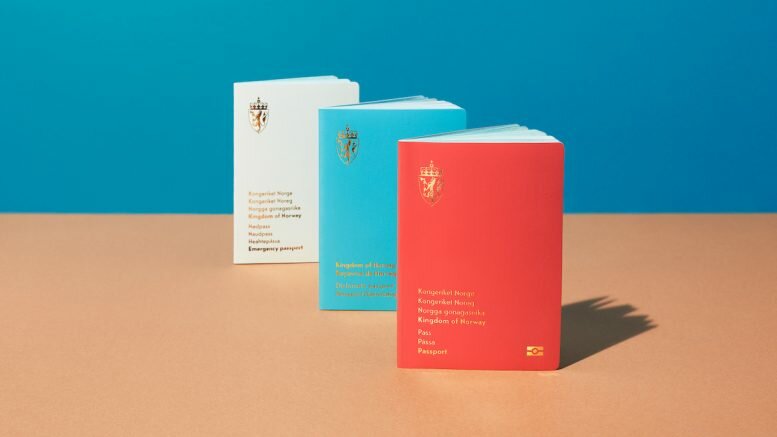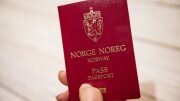For those not born in Norway, a great way to feel properly integrated and accepted is to become a Norwegian citizen. To become a citizen, one must undertake a Norwegian Citizenship Test. So, just how hard is it? What are the rights and responsibilities of a Norwegian citizen? How much do you need to learn about Norwegian language, history and culture? Read on to find out all you need to know about Norway’s citizenship test.
What is Norwegian citizenship?
Norwegian citizenship means you are, for political and practical purposes, Norwegian. Achieving Norwegian citizenship is seen as an important goal for many immigrants nationwide. Voting, receiving diplomatic help abroad, and a permanent legal living status in Norway are three major reasons this goal is so desirable.
Maybe most importantly, being a citizen means that you can vote in the national elections. This means that you have an active voice and role in shaping politics and thus the very nature and fabric of Norwegian society. Although some foreigners can vote in local elections, the national elections shape the Stortinget and therefore the Government. Helping shape the national political debate is part of any Norwegian’s civic duty.
A second reason for becoming a citizen is that you receive a Norwegian passport. Norwegian citizens receive visa-free travel to over 173 countries, territories, and states throughout the world. Furthermore, as a citizen abroad, you can seek assistance and aid from the Norwegian government worldwide.
Finally, when you are a citizen of Norway, you are legally a resident, for life, in Norway. You can say goodbye to visas, residency permits, and other immigration hurdles. You can come and go, to and from Norway, as you please.
Who can become a citizen?
Unlike in other countries, simply being born in Norway does not automatically grant an individual Norwegian citizenship. Norwegian nationality law dictates that there are only two ways that an individual can become a Norwegian citizen: through descent or naturalization.
Being the child of one Norwegian parent guarantees automatic citizenship regardless of the location of the birth. This is known as citizenship through descent. The second way of achieving Norwegian citizenship is through ‘naturalization.’ This is a process where one can apply for citizenship after having lived in Norway, legally, for a number of years. Furthermore, there has to be no record of criminality.
Depending on your country of birth, there are different rules and regulations to achieve citizenship. The best way to find out what they are is to consult the Department of Immigration’s (UDI) website here.
However, there are some commonalities between applicants. All must (1) have lived legally for a period of time in Norway (for most applicants, from January 1, 2022, the requirement will increase to 8 out of the past 11 years), (2) pay a fee (from January 1, 2022, adult applicants will have to fork out NOK 5500), and (3) must undertake a series of tests involving Norwegian language skills and knowledge of Norwegian society and culture.

Tests on both language and cultural skills and knowledge
The actual test/s you have to take to achieve Norwegian citizenship vary depending on your country of birth. However, there are three main criteria for most applicants between the ages of 18-67 years old.
1) You have completed approved tuition in the Norwegian language.
This means that you have either undergone 250 hours of Norwegian language skills at an approved institution (click here to see UDI’s list) plus an extra 50 hours of Norwegian social studies.
2) You have passed an oral Norwegian language test at the minimum level of ‘A2’.
Some of the examples of the tests include Norskprøven from Kompetanse Norge, the oral part of the Bergen Test (Test i norsk høyere nivå), or the Trinn-3 eksamen.
3) You have passed the Norwegian ‘citizenship test,’ which focuses on social studies.
This test (Statsborgerprøven) has a focus on Norwegian culture and social studies. The test is 60 minutes long, and candidates can take it in either Nynorsk or Bokmål. There are 36 questions, of which the candidate must answer 24 correctly to pass.
What is in the Statsborgerprøven?
The Statsborgerprøven requires that the candidate have sufficient knowledge of life, culture, and society in Norway. Questions range broadly and cover many aspects of life in Norway, including topics like history, geography, children and family, health, education and learning, working life, democracy, the welfare state, the way of life, and culture. A good resource is the list of topics, for social studies, that Kompetanse Norge provides on its website.
The purpose of the citizenship test is to ensure that every candidate understands the society in which they live and the rights, responsibilities, obligations, and civic duties granted and expected of those that live in Norway.
The test has a strong emphasis on aspects of Norwegian society that are not prevalent in many countries worldwide. This can involve questions about women’s rights, democracy, the meaning of freedom of speech, religious toleration, the benefits of paying taxes, and the functioning of Norway’s welfare state. An example of the test can be practiced here.

Where can you take the test?
As mentioned, the Statsborgerprøven is just one-third of the requirements to achieve Norwegian citizenship. The test is organized by education institution providers in conjunction with kommunes throughout Norway.
It should be noted that due to the COVID-19 pandemic, waiting times have increased, and the number of testing locations has decreased.
There is also a charge for the Statsborgerprøven. As an example of the cost, one of the providers, Oslo Voksenopplæring Servicesenter, charges NOK 900. To search where the Statsborgerprøven is available and to register, click here.
Dual citizenship is now allowed
The Storting approved, last January, dual citizenship in Norway. This led to a huge surge in applicants for Norwegian citizenship. Due to the multicultural nature of Norwegian society today, this was seen as very much a positive move and put it in line with other neighboring countries that allow dual citizenship like Sweden, Denmark, and Finland.
So, most importantly, study hard and remember that it is a privilege to be able to become a citizen of Norway. You will join an exclusive club of about five million people worldwide.
Lykke til!
Source: #NorwayTodayTravel
Do you have a news tip for Norway Today? We want to hear it. Get in touch at [email protected]






My Great Grandfather was Born in Stjord Island (near Bergen) and sailed out to Australia his ship ran aground and he never returned, We have Cousins still living in that area who we still correspond with. We have always been Proud of our Norwegian Descent and have visited the ‘Old Country’. Is there any way that we could apply for Citizenship? My Grandfather was Martinius Andressesn (Anderson)
Mr Andersen, nice story. I am an American permenent resident of Norway, chose to not have Norwegian Citizenship, my kids have it by mom. I would look up Americans in Norway on facebook. Many have dreams of moving here but it is tough. Living here consistently is a requirement. They say there is a little Norwegian in everybody, glad you are proud. I married a Norwegian many years back for love and, exploratiom, security and a new branch on my family tree to go forward here. I love it here! Many years later as the USA dwindles on the vine for many, our kids have been in the USA as often as they like and whenever they like and they hold two of the most desireable passports in the world for security and life options. THAT is a very VERY small club! They will have full rights to pass US Citizenship down to their children etc and remember the great man who left California and made so many possibilities, all possible.